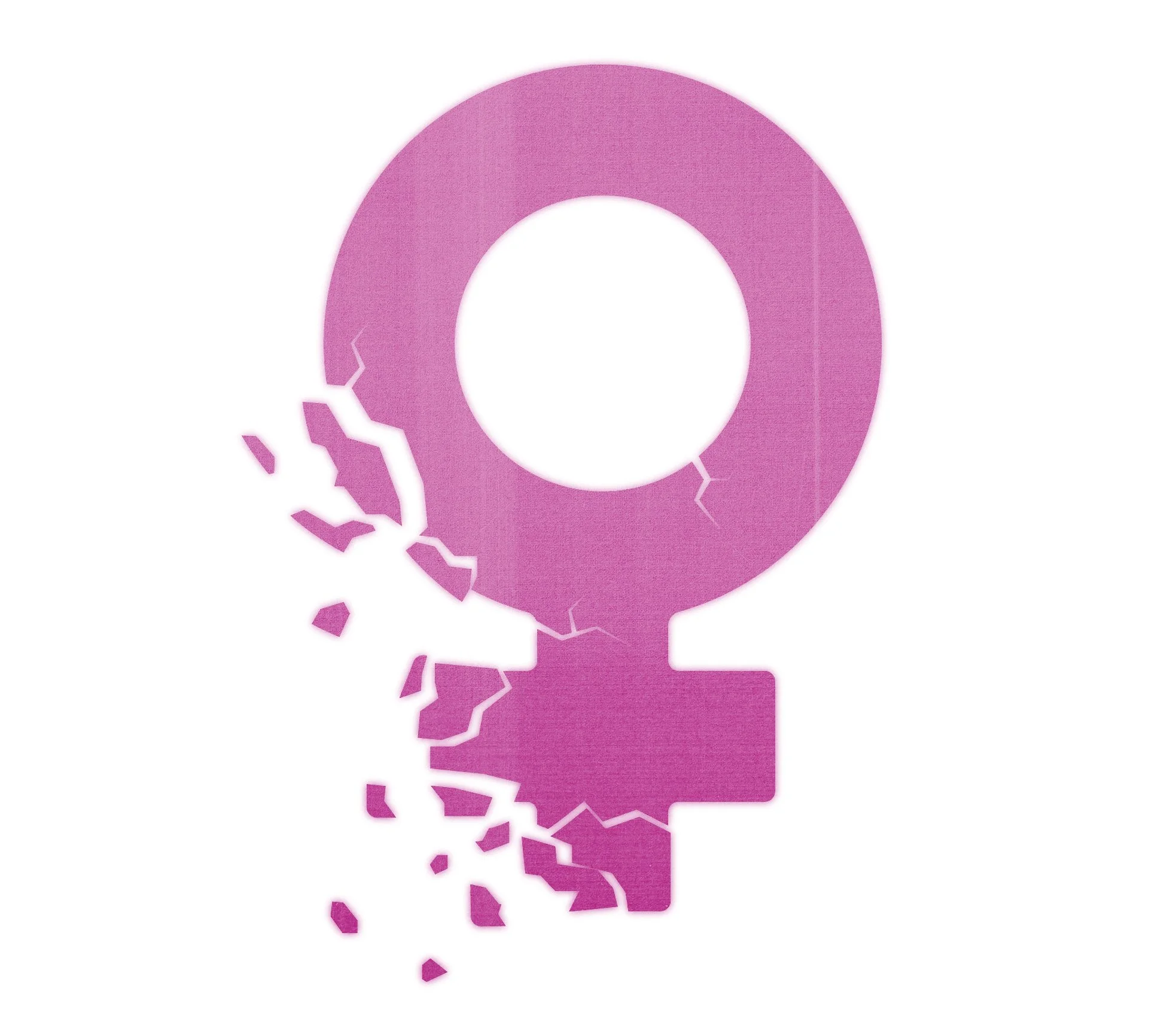Opinion | Is feminism dead?
When examining the recent iterations of the feminist movement, I’m hesitant of what comes next in the advancement of women’s rights. Illustration by WYATT LINCOLN, illustrator
Recently, I was talking with one of my friends about feminism, and we got stuck trying to figure out what the most recent accomplishment of the movement was. The closest thing we were able to come up with was the #MeToo movement of 2017.
This made ponder an essential question: where is the feminist movement today, and where is it going in the coming years?
In the last few years, we've witnessed backlash to the #MeToo movement, the Supreme Court overturning Roe v. Wade, the disproportionate negative impacts the COVID-19 pandemic had on women and much more. And in all this, no matter where I look, I don't see an organized movement to counter any of it.
Even though more people identify as feminists today than in the '80s, no apparent political movement is paving the way forward in terms of economic, social and political equality.
Feminism has become more mainstream, but that doesn't necessarily mean that it addresses the reality of most women. In fact, the type of feminism you tend to see the most in media is more catered toward middle and upper-class white women, like the movie “Moxie.”
This means that the main focus is on career advancement and keeping their last names after getting married instead of paid maternity leave for all and easy access to childcare or speaking out that Latinx women make $0.57 for every dollar a white man is paid.
This kind of feminism is not effective because it's trying to appeal to a broad audience without alienating anyone, and at the same time, it's trying to be marketable.
We don't need a movement that can be easily attached to an Amazon ad for the Super Bowl. We need a radical and confrontational political movement with clear goals and strategies.
Early feminism, even though undesirable in most people's eyes, had clear objectives they were trying to achieve. When women organized for suffrage in the early 1900s, they were considered unpleasant and resentful, but they secured the right to vote for women.
Similarly, the women who fought for the Equal Pay Act, Title IX, the equal rights amendment and the Roe v. Wade ruling in the '60s and '70s were perceived as angry and men-hating but saw significant judgments in their favor.
This changed in the ‘90s when “girl power” emerged, turning feminists from undesirable to a demographic worth marketing. This transformed feminism drastically, as it went from a political movement with clear goals to celebrating the achievements of individual women in power, regardless of how that power was used.
Emilia Cuevas Diaz, opinions editor
After a hiatus where it was deemed that we lived in a post-feminist society in the early 2000s, feminism came back to being trendy in the early 2010s with very similar values and focus as it had in the ‘90s. This is the type of feminism I grew up with.
In those years, feminism was wholly apolitical and far more focused on marketing the potential of "girlbossing." On the surface, this sounds like a natural progression where we achieved our goal of political equality, and now we're progressing to getting women into positions of power.
But since we never truly achieved political, social or economic equality, the girlboss ideals were more distracting than they were helpful.
When it comes down to it, this type of feminism focuses more on empowering individual women without aspiring to any systemic change for the rest. What came out of this was the idea that women should strive for personal financial progression without any regard for what they do to get to a place of success.
This once again left all political ideals on the sidelines, but it also tarnished the image of feminists, cementing them as heartless CEOs in search of money.
Here, feminism became more self-serving for a few women who had the means to climb to the top. The consequences of this were that the initial principles of the feminist movement of women lifting each other up were forgotten.
This changed with the #MeToo movement, which finally brought back the idea of feminism to political action with clear goals and purpose. The #MeToo movement saw women across the board come together to empower each other to tell their stories of sexual harassment, hoping to end it once and for all.
But despite all the good changes it brought, the #MeToo movement also had shortcomings. In the end, not a lot of the men who were accused actually suffered substantial consequences and there was a backlash that came directly from it.
According to various studies, men were less likely to want to hire women, have one-on-one meetings with them or take them on business trips than they used to and fewer women were hired overall.
This was exacerbated by the COVID-19 pandemic, which saw women as one of the most affected groups in terms of job loss, more childcare responsibilities and increased domestic violence.
After decades of being told that we live in a post-feminist society and that we don't need feminism as much as we did in the ‘80s, it's incredibly disheartening to see how we're moving backward instead of forwards. It is easy to feel like change is never going to come because it is a reality that today, we have fewer rights than we did in the '70s.
We are facing a movement that is trying to send us back decades in women's rights, and the worst part is that we don't have a counter-movement prepared to face it.
The feminism I've been exposed to in recent years seems more performative than actually engaged in the issues. I've often seen people I know post on their Instagram stories that talk about what feminism is, but rarely do I see posts calling to action.
But it's more than just the fact that it feels artificial: feminism today seems to be based on outrage at what is happening, but this foundation is not very solid. That is the problem with reactionary, angry-based feminism. It burns too fast to grow into an actual movement, and by the time we're done with our initial reactions, we're burnt out.
If we're being sincere, we are already tired to begin with. We keep having the same fights with no changes. We're facing many issues and no real solutions are being offered anywhere.
How much more can we take before complete burnout?
Writing this opinion piece was challenging. I just kept finding statistic after statistic showing me all the areas in which we are still struggling to be treated as equals. It's easy to get swallowed in a pit of despair and hopelessness when faced with that. The trick is that we must also look for a way to keep going forward.
Despite how bleak the picture looks, there is a bright side. There is a desire for a concrete movement that leads to solutions and organizing for specific purposes. And we are starting to see this come into play. In Kansas, women organized to vote to preserve the right to abortion regardless of party lines.
Feminism, as we've known it for the past few decades, is dying, but that isn't necessarily bad. The reality is that the old squeaky-clean commercial feminism needs to die for us to be able to find a new path forward and to be able to make an actual impact in the world.


